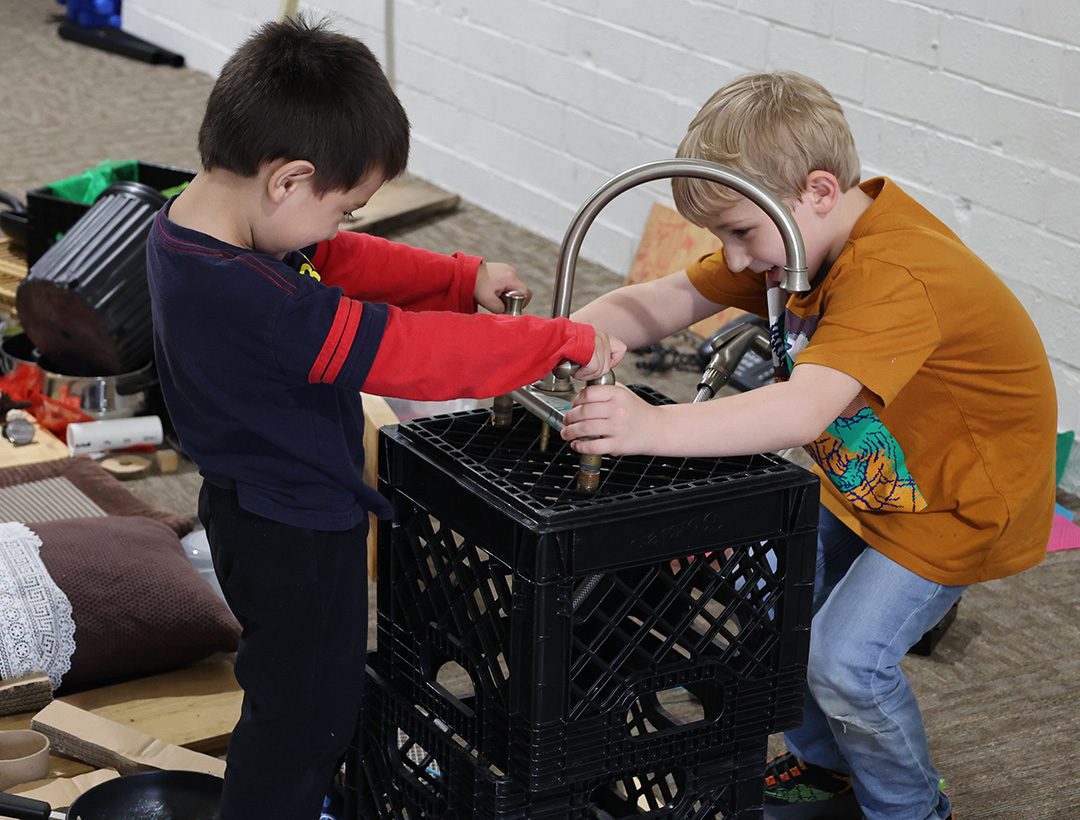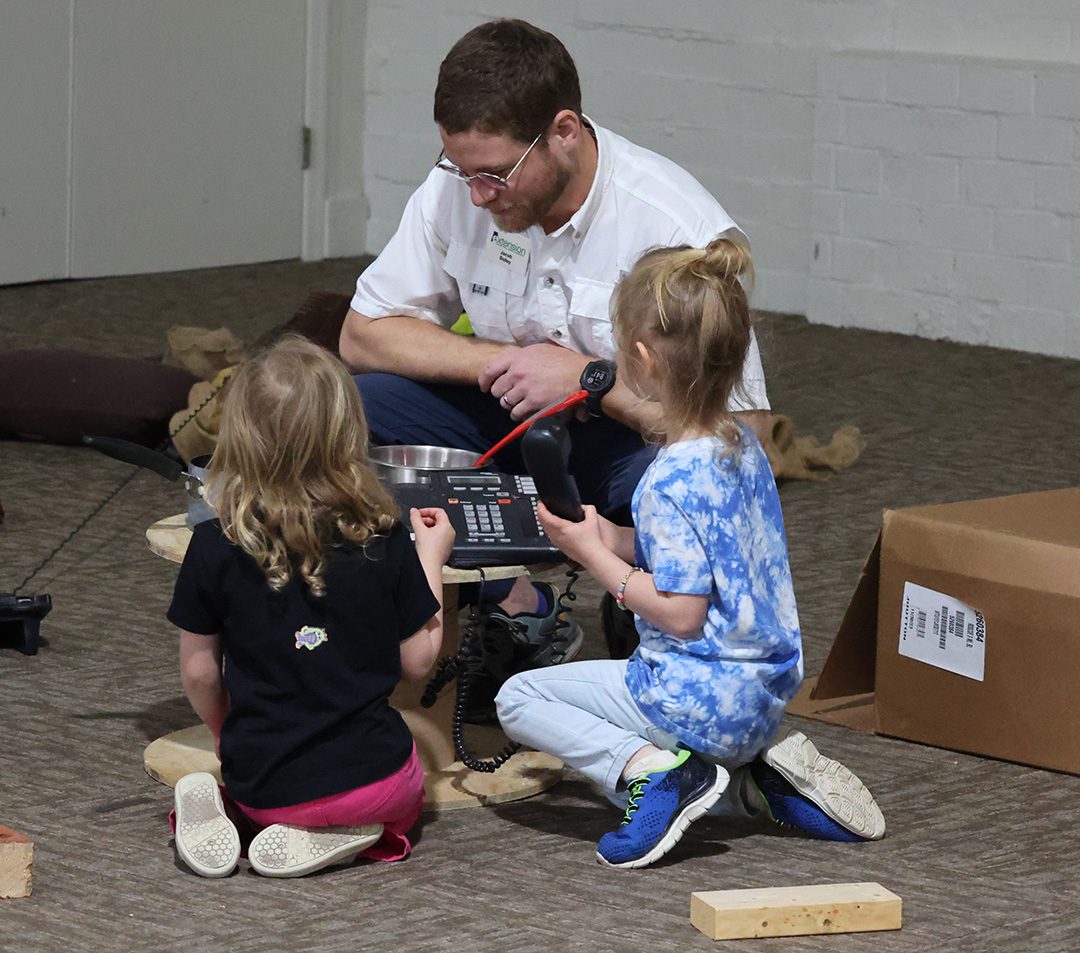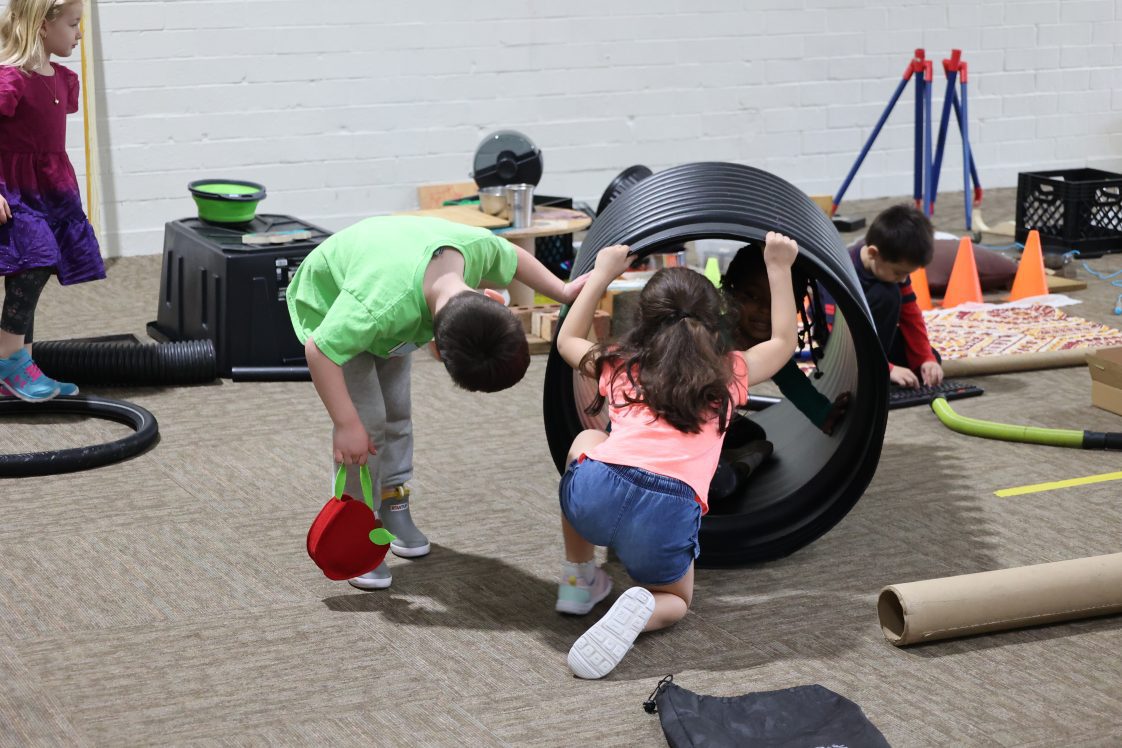Home & Family

AUBURN UNIVERSITY, Ala. — In an era where a child’s playtime has become structured and scheduled, one Alabama Cooperative Extension System regional agent is championing a return to the core of childhood play. Jacob Bailey — a Supplemental Nutrition Assistance Program-Education (SNAP-Ed) regional Extension agent — recently hosted a loose parts playground at Auburn First Baptist’s Day Care Program for a day of creativity, imagination and unstructured, physical-activity time.
Often, children find more joy in a toy’s packaging than in the toy itself. Bailey’s project, the Loose Parts Pop-Up Playground, uses the notion that simple objects can unlock vast realms of a child’s imagination and aid in developing crucial life skills.
 “This is a place for them to express themselves in the way they want to,” Bailey said. “Their imagination is so powerful at this age. They can see starships in cardboard boxes.”
“This is a place for them to express themselves in the way they want to,” Bailey said. “Their imagination is so powerful at this age. They can see starships in cardboard boxes.”
The playground offers an assortment of ordinary items — often overlooked as junk — which gives children the chance to create their own experiences during playtime. Bailey said this is commonly called child-directed play.
“What our adult minds sees as trash can become a wonderful playscape for children, especially when we let them teach us how to play,” Bailey said.
Benefits of Child-Directed Play
Child-directed play offers children a break from their structured schedules and omnipresent screens, granting them the freedom to explore their creativity, engage in physical activity and play independently. This type of play is not just for fun. It also helps children develop important social and problemsolving skills.
By managing their own activities, children learn to solve problems, overcome challenges and manage their emotions. This helps them develop emotional intelligence at their own pace.
Child-directed play also contributes to physical development, as it often involves activities that improve motor skills and coordination. Moving every day is a habit to create during childhood, and child-directed play can contribute to the formation of that habit.
Children also have the opportunity to take calculated risks during play, which helps them understand their limits and capabilities. This in turn boosts their confidence and self-esteem.
Mathematical skills are used in sorting games, and their storytelling abilities are enhanced by creating their own fairytales.
Bailey said child-directed play helps to cultivate essential social skills, including communication, negotiation and cooperation. Through play, children learn to assign roles, formulate rules and work toward shared goals. These skills help build a foundation for lifelong learning and social interaction.
Let Them Play
 Bailey’s innovative Loose Parts Pop-Up Playground not only brings back the essence of childhood through exploration and unstructured play but also highlights the critical role this type of play has in developing young minds and bodies.
Bailey’s innovative Loose Parts Pop-Up Playground not only brings back the essence of childhood through exploration and unstructured play but also highlights the critical role this type of play has in developing young minds and bodies.
Through the use of loose parts, children are not just playing; they are also learning to navigate life. Bailey’s initiative serves as a poignant reminder that when people provide children with the space to explore and play on their terms, they are not just being entertained. They are also being equipped to thrive in a complex world.
More Information
To learn more about nutrition and physical activity, visit www.LiveWellAlabama.com. There, you can find valuable resources, practical advice and insights to support your wellness journey.

